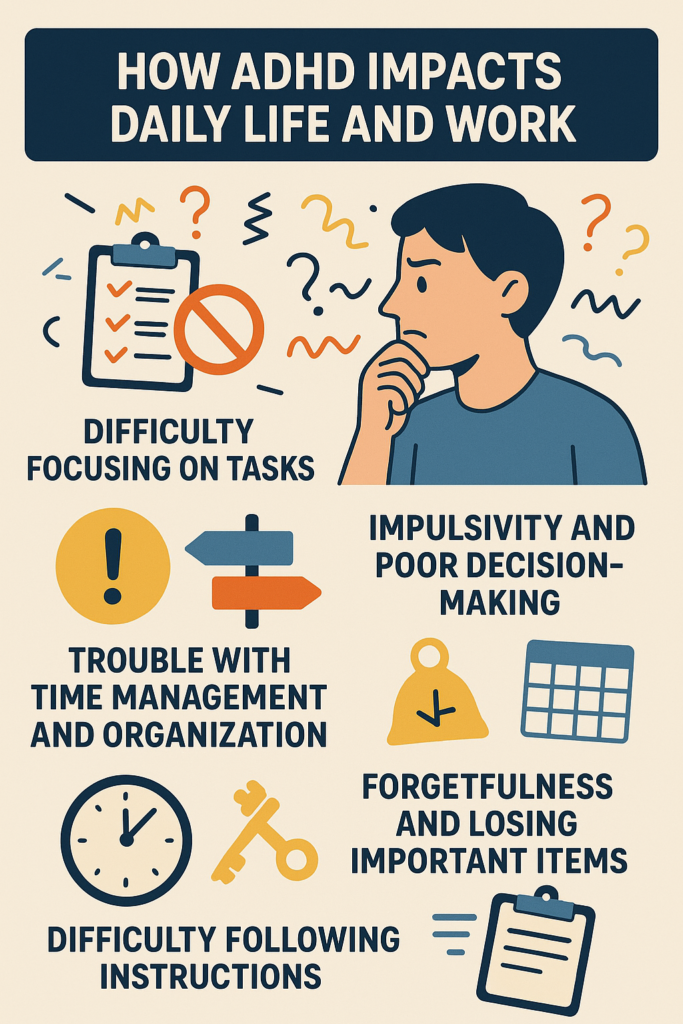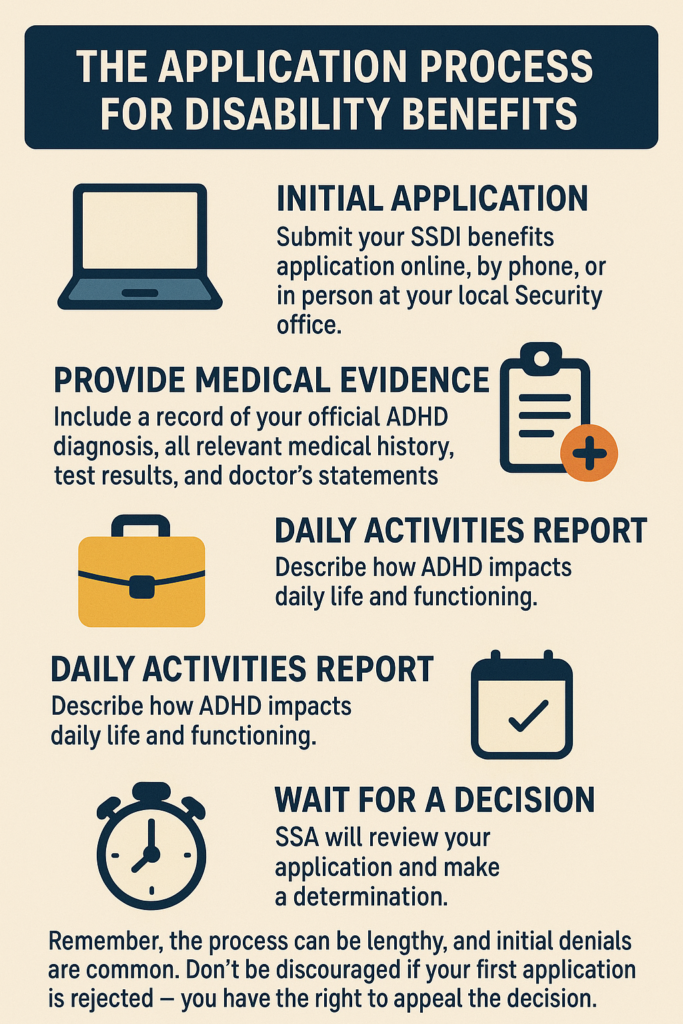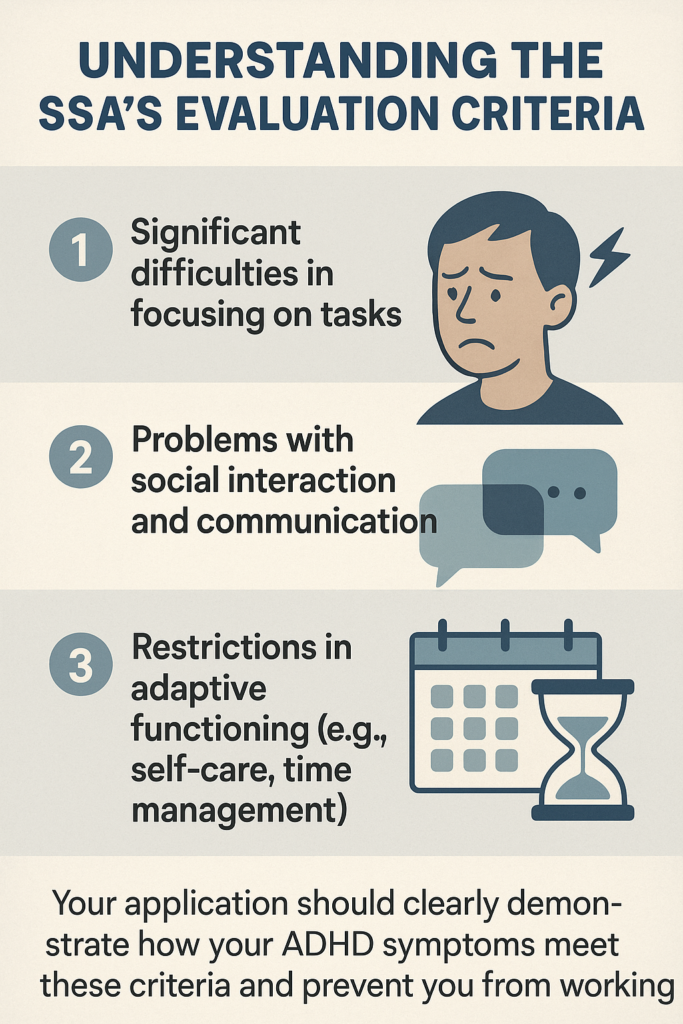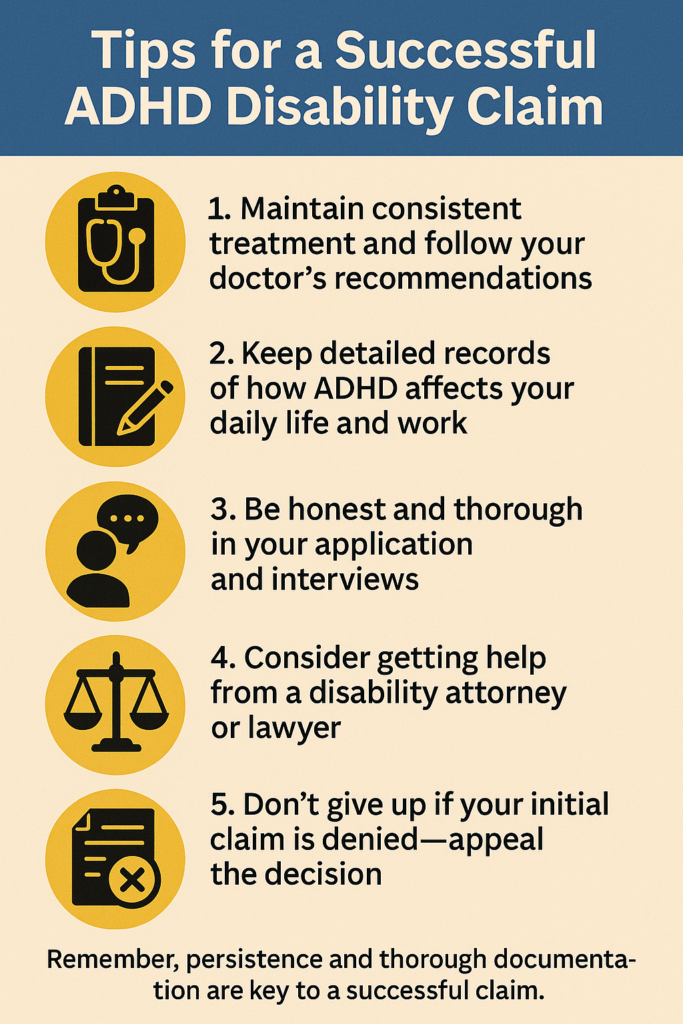Attention Deficit Hyperactivity Disorder (ADHD) is a complex neurodevelopmental condition that affects millions of people worldwide. For those living with ADHD, daily tasks and responsibilities can be challenging. In some cases, the symptoms can be severe enough to impact a person’s ability to work.
Social Security Disability Benefits are designed to provide financial support to individuals who are unable to work due to a disability. While ADHD is not automatically considered a disability, severe cases may qualify for Social Security benefits. It’s important to understand how ADHD is evaluated in the context of a Social Security disability claim and what steps you can take to increase your chances of benefit approval.
How ADHD Impacts Daily Life and Work

ADHD can affect various aspects of life, including the ability to maintain employment. Some common symptoms that can affect work include:
– Difficulty focusing on tasks
– Impulsivity and poor decision-making
– Trouble with time management and organization
– Forgetfulness and losing important items
– Difficulty following instructions
These symptoms can make it challenging to perform job duties consistently and effectively. In severe cases, individuals with ADHD may struggle to maintain employment or advance in their careers.
Qualifying for Social Security Disability Benefits with ADHD
The Social Security Administration (SSA) doesn’t have a specific listing for ADHD in the Blue Book of impairments. However, this doesn’t mean that you can’t qualify for SSDI benefits. The SSA evaluates ADHD claims under the neurodevelopmental disorder category of mental health.
To qualify, you must provide evidence that your ADHD symptoms are severe enough to prevent you from working. This includes:
1. Medical documentation of your ADHD diagnosis
2. Records of treatments and medications you’ve tried
3. Evidence of how ADHD impacts your daily functioning
4. Statements from employers about work-related difficulties
It’s crucial to work with your healthcare providers to gather comprehensive documentation of your ADHD and its impact on your life.
The Application Process for Disability Benefits

Applying for Social Security Disability Benefits with ADHD involves several steps:
1. Initial Application: Submit your SSDI benefits application online, by phone, or in person at your local Social Security office.
2. Provide Medical Evidence: Include a record of your official ADHD diagnosis, all relevant medical history, test results, and doctor’s statements.
3. Work History: Detail your employment history and how ADHD has affected your ability to work.
4. Daily Activities Report: Describe how ADHD impacts your daily life and functioning.
5. Wait for a Decision: The SSA will review your application and make a determination.
Remember, the process can be lengthy, and initial denials are common. Don’t be discouraged if your first application is rejected – you have the right to appeal the decision.
Gathering Strong Medical Evidence
Strong medical evidence is crucial for a successful Social Security benefits claim. Here are some tips for building a solid case:
– Keep detailed records of all medical appointments and treatments
– Ask your doctors to provide specific statements about how ADHD affects your ability to work
– Include reports from psychologists or psychiatrists who have evaluated your condition
– Provide documentation of any medications you’ve tried and their effects
The more comprehensive your medical evidence, the stronger your case will be.
Understanding the SSA’s Evaluation Criteria

The SSA uses specific criteria to evaluate disability claims for a neurodevelopmental disorder like ADHD. They look for evidence of:
1. Significant difficulties in focusing on tasks
2. Problems with social interaction and communication
3. Restrictions in adaptive functioning (e.g., self-care, time management)
Your application should clearly demonstrate how your ADHD symptoms meet these criteria and prevent you from working.
The Role of Functional Capacity in ADHD Disability Claims
Functional capacity refers to your ability to perform work-related tasks despite your condition. The SSA will assess your:
– Ability to understand and follow instructions
– Capacity to concentrate on tasks for extended periods
– Skills in interacting with coworkers and supervisors
– Adaptability to changes in the workplace
Providing concrete examples of how ADHD affects these areas and causes marked impairment can strengthen your claim.
Common Challenges in ADHD Disability Claims
Securing Social Security disability benefits for ADHD can be challenging. Some common obstacles include:
– Lack of sufficient medical evidence
– Inconsistent treatment history
– Difficulty proving the severity of symptoms
– SSA’s unfamiliarity with ADHD as a disabling condition
To overcome these challenges, work closely with your healthcare providers and consider seeking help from a disability attorney or advocate.
Tips for a Successful ADHD Disability Claim

There are a few things you can do to increase your chances of approval:
1. Maintain consistent treatment and follow your doctor’s recommendations
2. Keep detailed records of how ADHD affects your daily life and work
3. Be honest and thorough in your application and interviews
4. Consider getting help from a disability attorney or lawyer
5. Don’t give up if your initial claim is denied—appeal the decision
Remember, persistence and thorough documentation are key to a successful claim.
Additional Resources and Support
Living with ADHD and navigating the disability benefits system can be overwhelming. Here are some resources that may help:
– CHADD (Children and Adults with Attention-Deficit/Hyperactivity Disorder) https://chadd.org/
– National Resource Center on ADHD https://chadd.org/nrc/
– Social Security Administration’s Disability Benefits https://www.ssa.gov/benefits/disability/
These organizations offer information, support, and guidance for individuals with ADHD and their families.
Moving Forward with Your ADHD Disability Claim
Applying for Social Security Disability Benefits with ADHD can be a complex process, but it’s not impossible. With proper documentation, persistence, and a clear understanding of the SSA’s requirements, you can build a strong case for your claim.
Remember that every situation is unique, and the outcome of your application will depend on the specific details of your case. If you’re struggling to work due to severe ADHD symptoms, don’t hesitate to explore your options for disability benefits. They can provide crucial financial support and help you manage your condition more effectively.
Stay informed, advocate for yourself, and don’t be afraid to seek help when needed. With the right approach and support, you can navigate the disability benefits process and focus on managing your ADHD symptoms for a better quality of life.
At Benefits.com, we aim to point you in the right direction towards all the benefits available to you. Take our free eligibility quiz today to get started!
 Benefits.com Advisors
Benefits.com Advisors
With expertise spanning local, state, and federal benefit programs, our team is dedicated to guiding individuals towards the perfect program tailored to their unique circumstances.
Rise to the top with Peak Benefits!
Join our Peak Benefits Newsletter for the latest news, resources, and offers on all things government benefits.




















